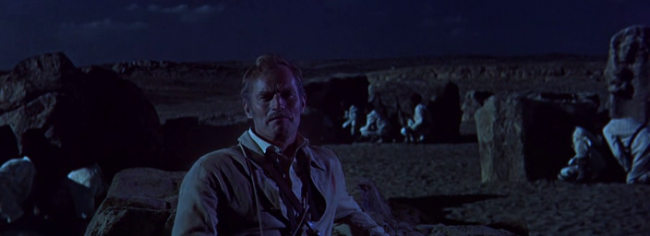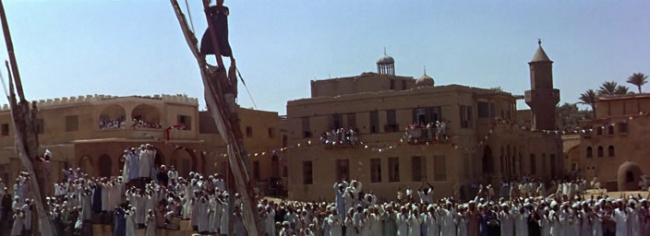
My internet's been bad all weekend due to rain so I watched something I had on file last night, Laurence Olivier's 1983 King Lear. It remains my favourite of all the productions I've seen.
I think Olivier, of all the Lears I've seen, does the best job of conveying the impression of a man going mad but who is also painfully aware of his madness. That's the real heartbreak in his repeated, "Let me not be mad!" line. Not that he's going mad, but that he's aware of it. It's a real horror, especially considering it's one we all may face one day.

His madness really stems from two causes--his age and his grief. It's one thing to say he's foolish for misjudging his loved ones, but then think for a moment about what that must be like. To be brought forcibly to the realisation that your nearest and dearest aren't who you thought they were. It really comes in two layers because first he believes Cordelia and Kent aren't who he always thought they were. He can at least muster confidence enough to banish them. But when he discovers how little he could trust the promises of Regen or Goneril, he learns he can't even rely on his ability to discern revelation. He thought he had a revelation, but he later realises he understood nothing.

This confusion is strikingly mirrored in the subplot about Gloucester and his sons. The poor old man, with his eyes put out, being led to the edge of what he thinks is a cliff. It's ironic that Edgar has the last line of the play, presented like a moral, that we should say what we feel, not what we ought. He spends a lot of time deceiving his father. On the other hand, maybe that was a product of a real temporary madness on Edgar's part. Also, if we interpret the words "say what we feel not what we ought," literally, they don't mean, "Always tell the truth," as they're often thought to mean. Pretending to be Poor Tom and then pretending to have seen a monster has a kind of emotional truth, not unlike the Fool's nonsense. And it's a truth meant to help the old man, not to cut him down, as Regan's, Goneril's, and Edmund's deceptions were.
Still, it's dangerous business. With all of life's ambiguities and confusions, who's really in a position to decide when it's best to tell a falsehood? For this reason, I do think Cordelia made the right choice. Truth is too rare a commodity.












